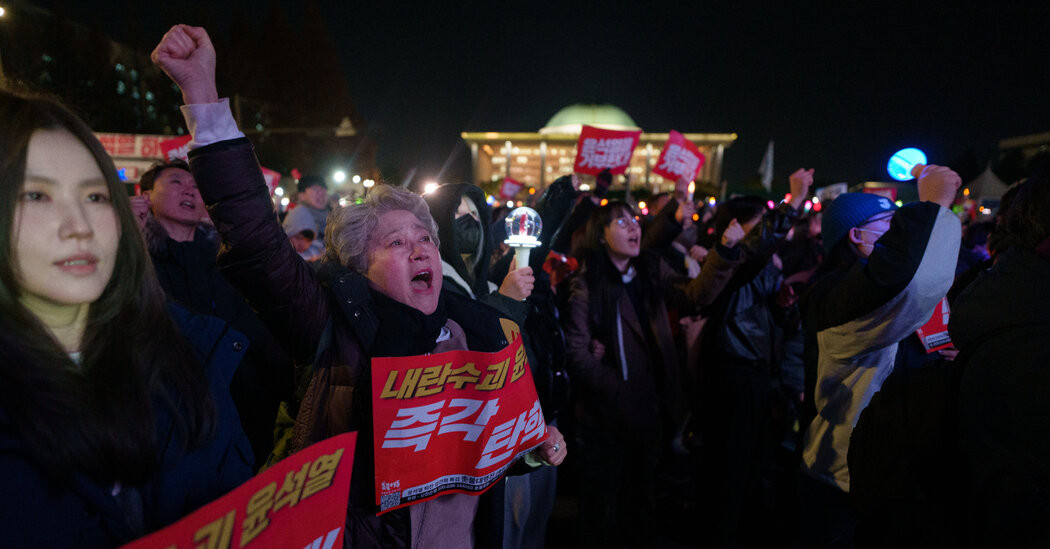

The country was thrown into deeper uncertainty after the governing party changed its stance and refused to oust him. Protesters vowed to keep the pressure on.
South Korean lawmakers’ attempt to impeach President Yoon Suk Yeol ended in failure on Saturday night, prolonging the political upheaval and uncertainty that has roiled the country since his short-lived imposition of martial law this week.
The failed vote was a reversion to political deadlock in the deeply divided country, despite large-scale protests calling for the president’s removal. It was a contrast to the brief moment early Wednesday when lawmakers across the political spectrum came together to vote swiftly and unanimously against the president’s martial law declaration.
Saturday’s move by the opposition to impeach Mr. Yoon was foiled by his conservative People Power Party, which boycotted the vote and prevented the necessary quorum. All but one member of the party walked out of the room before the impeachment motion was put to a vote, making the effort moot even before the first ballot was cast.
The opposition drew out the vote over several hours into the night, urging lawmakers to return to the chamber to participate in the democratic process, in the very building that had been stormed days earlier by hundreds of soldiers acting under martial law orders.
“The South Korean people were watching our decision today. Nations around the world were watching us. It is utterly unfortunate that the vote effectively didn’t occur,” the assembly speaker, Woo Won-shik, said as he called the session to a close.
Earlier on Saturday, Mr. Yoon bowed before the nation and apologized in a brief televised address, his first public appearance since the move to install martial law. He said that he had taken the step out of desperation, and that he would not try to avoid legal or political responsibility for the martial decree.
![[GOOD PRESS] ON](https://georgemagazine.com/wp-content/uploads/2024/08/16389056566437433941_2048-300x300.jpeg)


